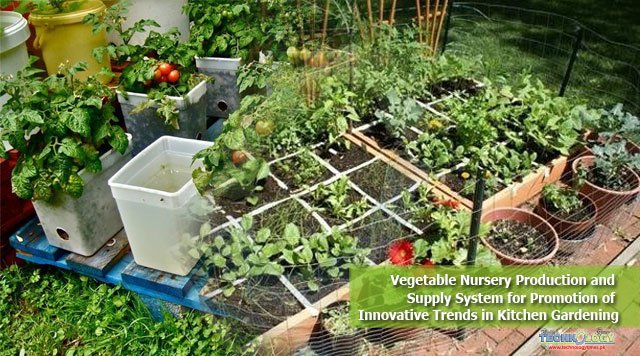The importance of vegetable in human health necessitates promotion of vegetable eating and growing for sustainable human health.

Asif Ali Khan and Nabeel Ahmad Ikram
Vegetables are source of many nutrients, including potassium, fiber, folate (folic acid) and vitamins A, E and C which play an important role in maintaining health. People who include fruits and vegetables in their daily diet have a reduced risk of many chronic diseases.
The importance of vegetables in human health necessitates promotion of vegetable eating and growing for sustainable human health.
Vegetable are cash crops and require regular irrigation, unlike most of crops including cereals and pulses.
Vegetables grown in the peri-urban areas are mostly irrigated by sewage water. Although sewerage water has a huge amount of nutrients needed for plant growth and farmers do not have to pay for fertilizer yet contain heavy metals and other toxic compounds.
Vegetables grown on this water containing residues of these toxic compounds cause many diseases like cancer, diarrhea and hepatitis etc. in human beings. As vegetables grown commercially using sewerage water are contaminated with compounds toxic to human health therefore growing vegetables as kitchen gardening needs to be promoted for producing healthy vegetables at household level.
Growing vegetables through seed is a problem and is not very successful for kitchen gardening. In this regard Prof. Dr. Asif Ali, Vice Chancellor MNS-University of Agriculture Multan started a project in 2017 funded by AIP (Agriculture Innovation Program) and USAID with objectives to promote kitchen gardening, home gardening and roof top gardening by establishing a system for provision of healthy nursery for economical and clean (pesticide free) vegetable production for a healthy community.
Both male and female students are involved in various activities of the project to build their capacity regarding nursery media preparation, multi-pot tray filling, sowing and further nursery management. During this period vegetable nursery produced in this project was displayed on nine international conferences, two International horticulture expo. A permanent vegetable nursery sale point is established at the university as well as Online Vegetable Nursery Supply System has been started which provides us the freedom to keep our vegetable supply system open 24/7.
Programs for awareness of society for healthy plant based foods and promotion of kitchen gardening for self-sufficiency in vegetables were conducted at Forty nine schools, colleges, universities, industry, housing colonies and villages including government and private sector.
Three Plant centric meal competitions have been organized at the University in which students from different schools, colleges and universities participated with different plant based food ideas which were appreciated by visitors. The awareness campaigns were also launched on electronic and print media.
The response of private nursery partners, general public, and female students in awareness campaigns was positive, which has led to linking this project to community. A state of the art vegetable nursery house has been constructed at MNS- University of Agriculture Multan for raising of season and off season vegetables.
Different vertical vegetable production structures have been developed for promotion of innovative trends in kitchen. In this modern era of computer and internet, consumers are increasingly turning to the social media facilities in this regard Facebook page and WhatApp Group has been created to provide advice, guidelines and assistance to stakeholders regarding successful production of vegetables as kitchen gardening.
Fourteen demonstration plots are established at different industrial unites, government and private organizations for awareness among the community regarding clean and healthy vegetable production at household level through proper use of roof tops.
So far 9300 nursery plants of tomato 5000 plants of chilies, 3000 plants of sweet pepper, 2040 plants of bringle, 2070 plants of cucumber and 1200 plants of bitter gourd 980 plants of Pumpkin, 1890 plants of vegetable marrow,2300 plants of luffa, 1509 plants of melons have been raised in multipot trays. Up till now 28,339 seedlings of different vegetables have been distributed among community.
Project is moving towards self-sufficiency by involvement of students with the aim to promote entrepreneurship and receiving nominal cost of five rupees per plant from sale of nursery plants.
Furthermore, this project has the potential of changing the preference of people from meat based foods to plant based foods to ensure a healthy life through awareness programs. The training to stakeholders and availability of nursery plants will also help the community to grow vegetables in their backyards and rooftops to harvest healthy vegetables free from toxic chemicals.
This also added value to the aesthetic sense of the community. Lock down due to corona viruses pandemic caused an opportunity for community to start kitchen gardening at their household level which results in availability of nutritious vegetable as well as improve immunity level of community against infectious diseases.
In this regard MNS-University of Agriculture Multan is providing healthy and ready to transplant vegetable seedling to the community at the cost of 5 rupees per plant. These seedling are available from university in office hours.
The authors are from Muhammad Nawaz Shareef, University of Agriculture, Multan, Pakistan. Corresponding author can be reached at nabeelahmadikram@gmail.com